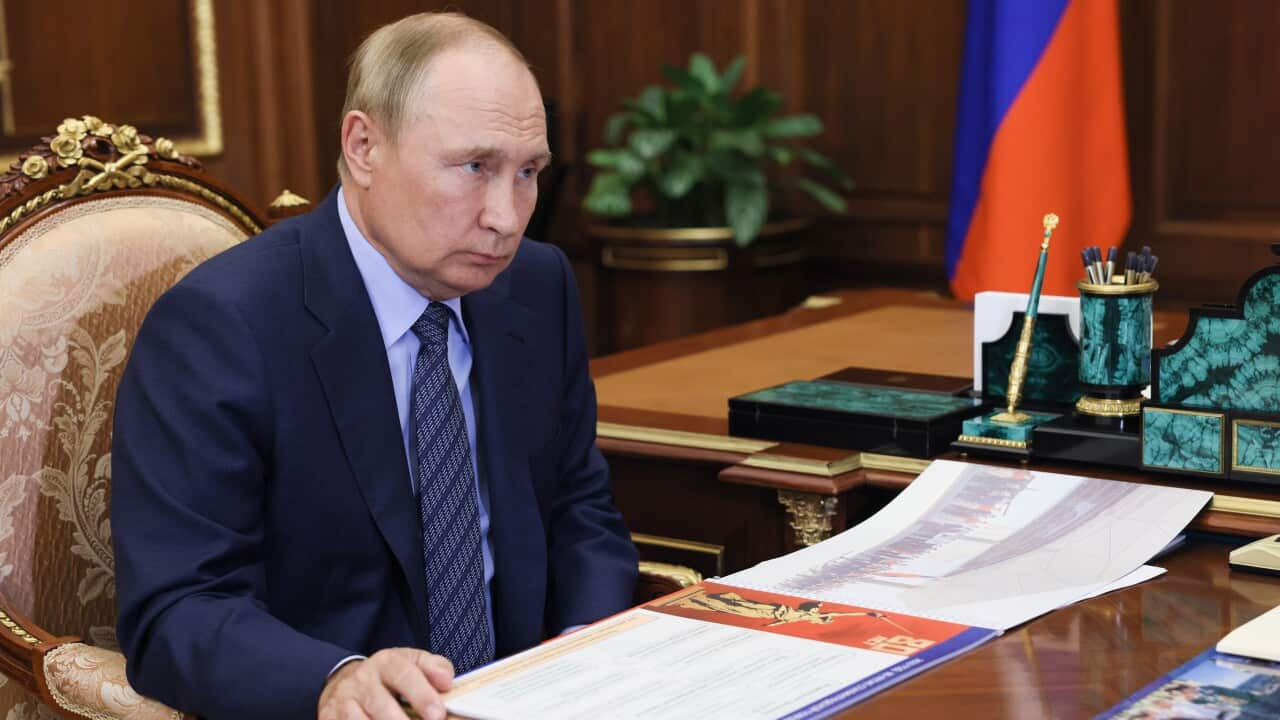Russian President Vladimir Putin has signed decrees paving the way for the occupied Ukrainian regions of Kherson and Zaporizhzhia to be formally annexed into Russia.
The decrees, made public by the Kremlin, said Mr Putin had recognised the two regions as independent territories.
It is an intermediary step needed before Mr Putin can go ahead with plans to annex the four Ukrainian regions of Donetsk, Luhansk, Kherson and Zaporizhzhia at a grand ceremony in the Kremlin on Friday.
President Putin will deliver a "major" speech on the same day, said Kremlin spokesman Dmitry Peskov.
How has Ukraine responded?
Ukrainian President Volodymyr Zelenskyy has called an "urgent" meeting of his national security council on Friday, his spokesman said.
In a video appeal he has urged minority groups across Russia to resist the Kremlin's mobilisation effort, telling them they need not die in a "shameful war".
Non-Russian groups, mainly from the Caucasus in the south of Russia and from Siberia, are over-represented in military contingents sent to Ukraine.
"You don't have to die in Ukraine. Your sons don't have to die in Ukraine," Mr Zelenskiy said.
What is happening on the ground in Ukraine?
In the south, Ukrainian forces have been wresting back territory near Kherson and residents of recently recaptured villages described to AFP journalists this week months of terror under Russian occupation.
"They robbed and humiliated us," 72-year-old Maria Syzhuk said in the village of Vysokopillya, echoing with the dull thuds of artillery from both sides -- mostly in the distance, but sometimes a little too close.
Kyiv's army in particular has been progressing in the eastern Kharkiv region and recapturing territory in Donetsk.
Military observers say Ukrainian forces are close to capturing Lyman.
"At the moment, our units are managing to repel all attacks," a Russian-backed official in the Donetsk region, Alexei Nikonorov, told state TV on Thursday.
Russian forces are striking back along the entire frontline and officials in Kyiv said that Russian bombardment had killed three in the Dnipropetrovsk region, five in Donetsk and wounded seven in the Kharkiv region.
Russian troop mobilisation
Russia's partial military mobilisation has heightened tensions.
Mr Putin has called for mistakes with the draft to be "corrected", as discontent grows over the often chaotic conscription push.
"I do not want to kill people."A young Russian in Mongolia fleeing Moscow's first military call-up since World War II.
Finland's Vaalimaa crossing has been flooded with new arrivals recently and has grown more precarious after Helsinki announced it would close its border from midnight to Russians holding European tourism visas for the Schengen zone.
"I just made it through, I don't know how the others will get through. It's sad, sad," Andrei Stepanov, a 49-year-old Russian, told AFP of Finland's new restrictions.
On a bright morning in Mongolia's capital Ulaan Baatar, a young Russian fleeing Moscow's first military call-up since World War II had a stark answer for why he had left: "I don't want to kill people."
"It was very difficult to leave everything behind -- home, motherland, my relatives -- but it's better than killing people," the man in his 20s told AFP, speaking on condition of anonymity.



